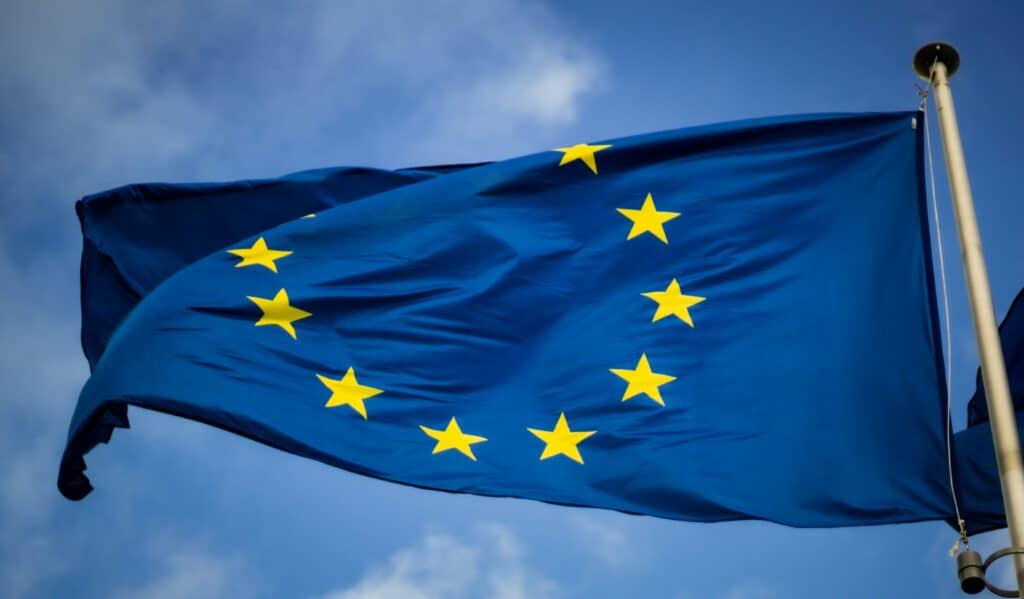The European Union (EU) has ratified a new regulation against violations of sanctions, which include measures to freeze cryptocurrencies.
In particular, strategies are introduced to address cryptographic service providers and block digital assets. Let’s see all the details below.
The latest EU regulation to target crypto service providers and block digital assets
As anticipated, members of the European Parliament recently approved new provisions aimed at strengthening control over sanctions violations, including those involving cryptocurrencies.
Today, the legislators of the European Union, known as Members of the European Parliament (MEPs), have voted in favor of implementing new laws aimed at violations of sanctions.
These laws include travel bans, arms embargoes, trade restrictions, and asset freezes, including crypto-assets and wallets.
The Dutch MEP Sophie in ‘t Veld emphasized the importance of this legislation. Specifically highlighting that divergent national approaches have created vulnerabilities and gaps, while the new rules will allow for the confiscation of frozen assets.
The new directive provides for harsher penalties for those who violate or evade sanctions. The new laws turn violations of sanctions into criminal offenses, punishable by imprisonment for up to five years in all EU Member States.
The legislators representing the 27 Member States have expressed their support for the new rules with 543 votes in favor, while 45 have voted against and 27 have abstained.
This EU legislation has been promoted due to concerns about the possible circumvention of the sanctions of the blockade against Russia.
AMLA: headquarters in Frankfurt for the new European anti-money laundering authority
Recently, representatives of the Council of the European Union and the European Parliament reached an agreement on the location of the future European authority for anti-money laundering and combating the financing of terrorism (AMLA).
Specifically, it is established that the organization will be located in Frankfurt, Germany.
The Authority, responsible for overseeing the cryptocurrency sector, plans to start its operations in the middle of next year. With over 400 staff members, it becomes the focal point of the EU’s anti-money laundering framework reform, as stated in a press release.
Despite the official decision, Mairead McGuinness, European Commissioner for Financial Stability, Financial Services and Capital Markets Union, had anticipated that the authority was already operational the morning after the decision.
During a press conference, McGuinness emphasized the importance of AMLA in mitigating risks related to large financial transactions, imposing a 10,000 euros limit at the European level for cash payments.
He also highlighted the need to address the risks arising from cryptocurrencies and the anonymity that such transactions allow.
The location of the headquarters in Frankfurt follows the EU’s revision of rules on the transfer of funds last year, which allowed for tracking of cryptocurrency transactions.
Recently, the EU has also approved its relevant regulatory framework Markets in Crypto Assets (MiCA).
The EU introduces the AI Act: revolutionary regulations on artificial intelligence
The European Union (EU) has recently implemented the AI Act, legislation that focuses on high-risk areas in the use of AI technology.
The law, acclaimed as “historic” by EU Commissioner Thierry Breton, introduces a risk-based approach to AI supervision. In particular, focusing on high-risk sectors such as government use of artificial intelligence for biometric surveillance.
Furthermore, it establishes rules for systems similar to ChatGPT, requiring transparency before their introduction to the market. The vote, which followed a political agreement in December 2023, marks months of meticulous work on the formulation of the legislative text.
The AI Act is based on the principle that the higher the risk associated with the application of AI, the greater the responsibility of developers. This principle is particularly significant in critical sectors such as recruitment and access to education.
Margrethe Vestager, Executive Vice President of the European Commission for an Europe ready for the digital age, emphasizes the focus on high-risk cases. Ensuring that the development and implementation of AI technologies are in line with EU values and standards.
The full implementation of the AI law is expected by 2026, with specific provisions that will come into effect earlier to facilitate a gradual integration of the new regulatory framework.
In addition to establishing the regulatory framework, the European Commission proactively supports the EU’s artificial intelligence ecosystem, including the AI Office responsible for monitoring compliance with the law.
The EU’s AI Act will be the first global regulation on artificial intelligence. Aimed at regulating the use of AI in the EU to promote responsible deployment, protect individuals, and instill trust in artificial intelligence systems.
The law is structured around four levels of risk, providing a clear and understandable approach to the regulation of AI.
This is enforced through national market surveillance authorities, with the support of a European office for artificial intelligence within the European Commission.
